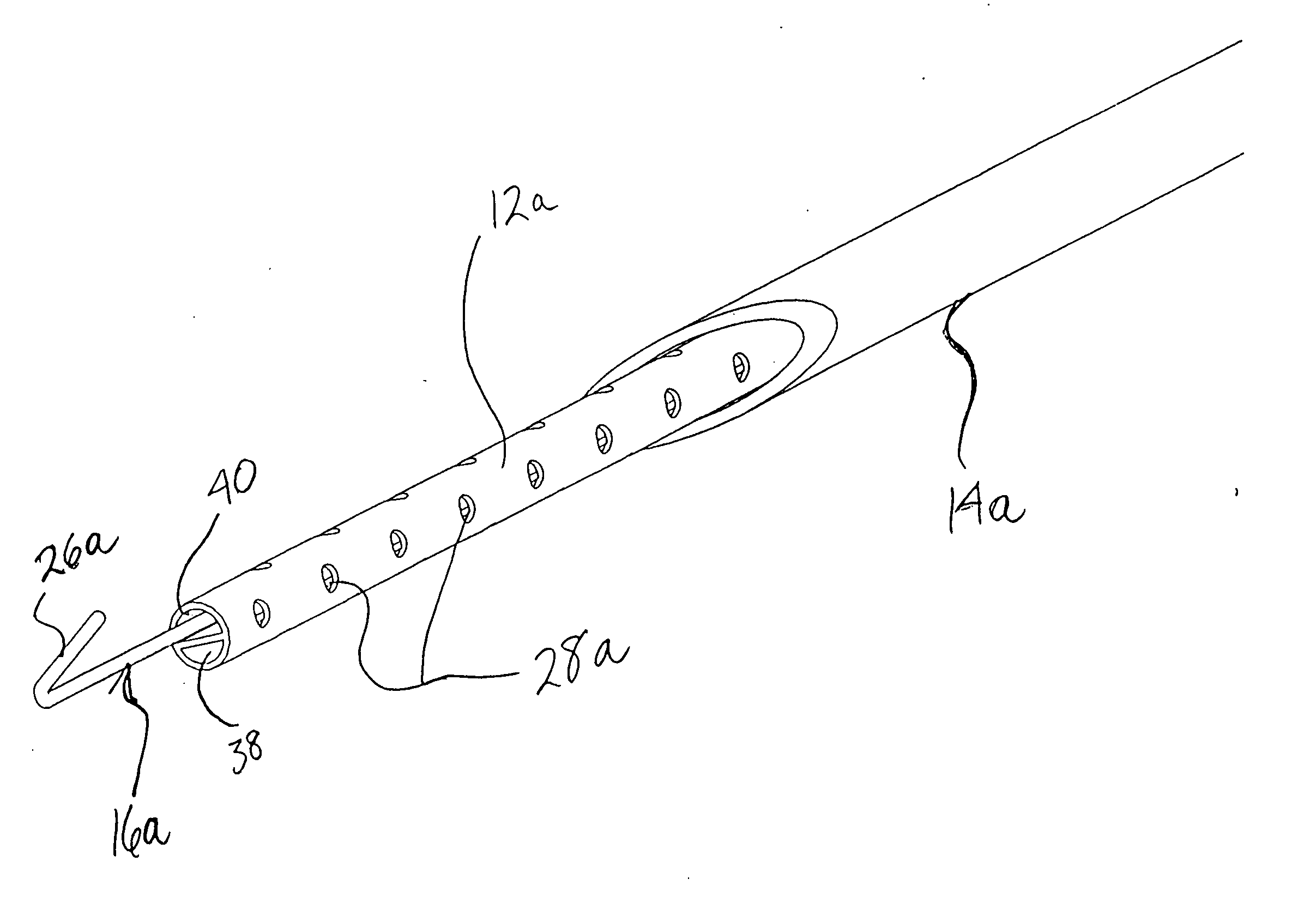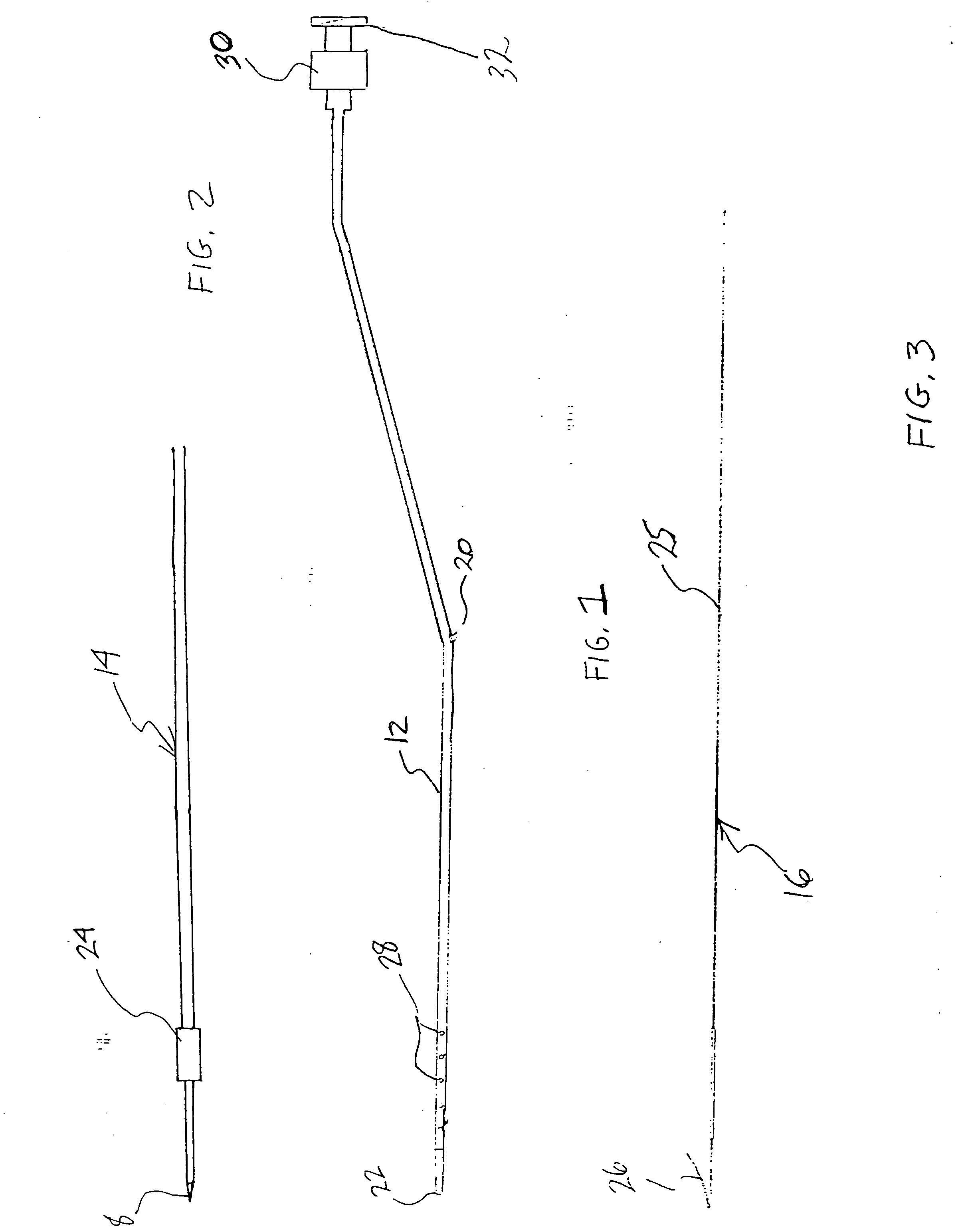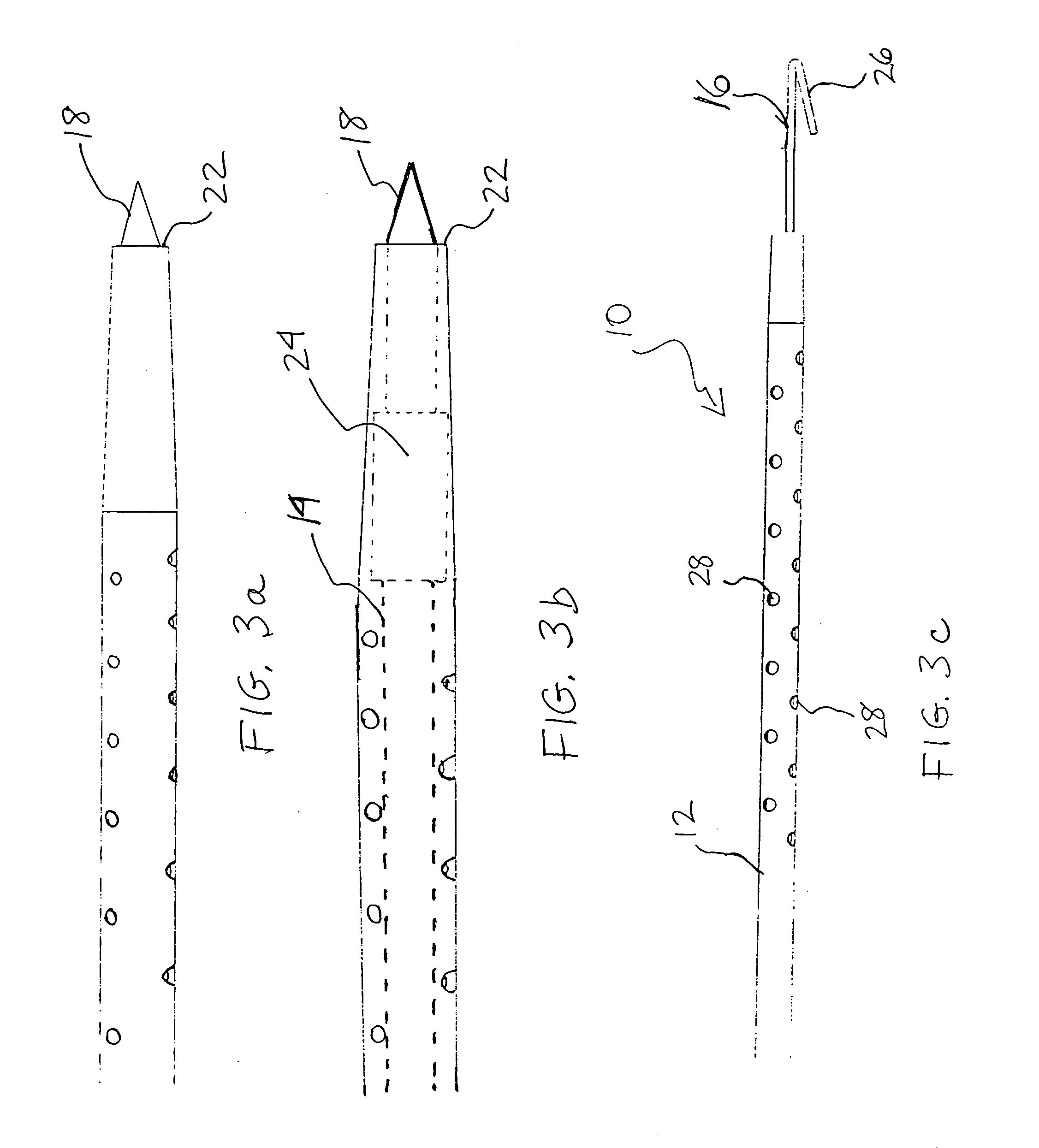Methods and apparatus for securing medical instruments to desired locations in a patient's body
a technology for securing medical instruments and patient bodies, applied in applications, vaccination/ovulation diagnostics, diagnostic recording/measuring, etc., can solve the problems of reducing the likelihood of removing target tissue, patient's breast must remain, and no single procedure is ideal for all cases, so as to achieve accurate placement
- Summary
- Abstract
- Description
- Claims
- Application Information
AI Technical Summary
Benefits of technology
Problems solved by technology
Method used
Image
Examples
first embodiment
[0043] Referring now more particularly to the drawings, FIGS. 1-3c illustrate the invention, wherein a medical instrument 10 (FIGS. 3a -3c) comprises a catheter 12 (FIGS. 1, 3a -3c), an introducer needle 14 (FIGS. 2, 3a, and 3b), and a localization wire 16 (FIGS. 3, 3c). In this embodiment, which may be styled as a “needle in” infusion system, the introducer needle 14 comprises a sharp distal end 18, which is inserted through an entry hole 20 in the catheter 12 (FIG. 1), so that its tip 18 extends beyond the distal end 22 of the catheter 12, as shown in FIGS. 3a and 3b. The introducer needle 14 may include a stop 24 having an enlarged diameter, which is adapted to engage the distally tapering inner sidewall of the catheter 12 at a predetermined point, as generally shown particularly in FIG. 3b, to ensure that the tip 18 properly extends beyond the distal end 22 of the catheter 12. The introducer needle 14 and catheter 12 together are then introduced into a patient's body (not shown)...
third embodiment
[0053] Still a third embodiment, which functions in a manner equivalent to that of a localization wire is illustrated in FIGS. 9 and 10. In this embodiment, a catheter 48, which comprises a proximal hub 50, a distal end 52, and a lumen 54, is insertable into a patient's body using conventional image guidance techniques, so that the distal end 52 is disposed at a desired target tissue site. Once properly located, a bonding agent 33 is infused through one or more infusion ports 56 to surrounding target tissue, in order to bond the distal end of the catheter 48 to the surrounding tissue. Again, as in the previous embodiments, the bonding agent may be injected into the lumen 54 of the catheter through the proximal hub 50, or may alternatively be stored in the distal end 52 of the catheter and selectively released at the desired time.
[0054]FIGS. 11 and 12 illustrate two alternative embodiments for the outer tube 58 of the catheter in any of the foregoing embodiments. In FIG. 11, the tube...
PUM
 Login to View More
Login to View More Abstract
Description
Claims
Application Information
 Login to View More
Login to View More - R&D
- Intellectual Property
- Life Sciences
- Materials
- Tech Scout
- Unparalleled Data Quality
- Higher Quality Content
- 60% Fewer Hallucinations
Browse by: Latest US Patents, China's latest patents, Technical Efficacy Thesaurus, Application Domain, Technology Topic, Popular Technical Reports.
© 2025 PatSnap. All rights reserved.Legal|Privacy policy|Modern Slavery Act Transparency Statement|Sitemap|About US| Contact US: help@patsnap.com



